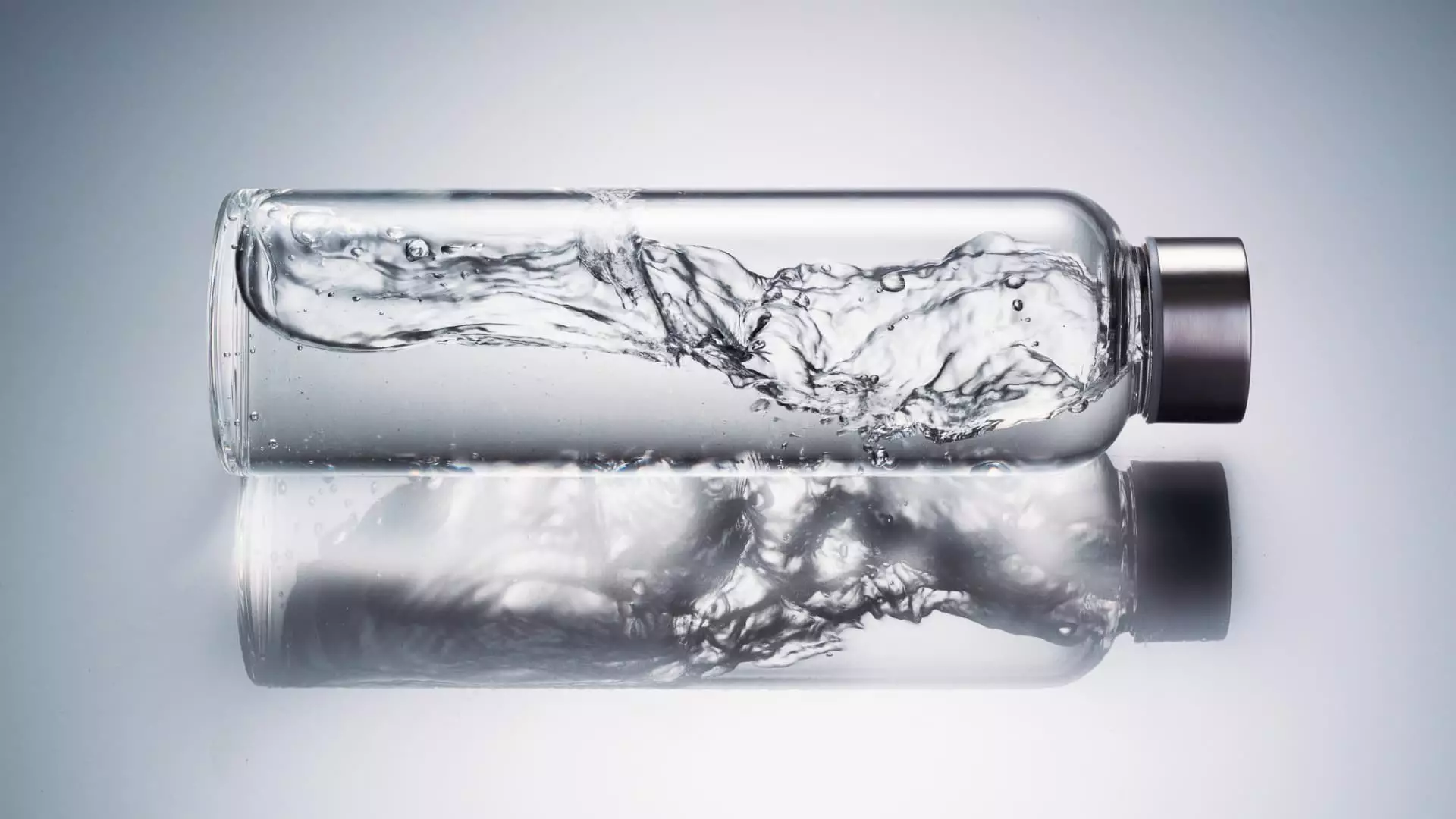In the sprawling culinary landscape of modern gastronomy, the selection of drinks—including water—has transformed into a statement of sustainability and luxury. Particularly noteworthy is Singapore’s three-Michelin-starred Restaurant Zen, where guests cannot request famous brands like Evian or San Pellegrino. Instead, the establishment presents diners with water exclusively from Nordaq, a Swedish company renowned for its sustainable practices. This shift signifies a broader trend in the hospitality industry, where traditional bottled waters—often imported from abroad—are being replaced with locally sourced alternatives that emphasize environmental responsibility.
Executive Chef Martin Öfner elaborates on this concept by explaining how every element of the dining experience at Zen revolves around Nordaq water. From stocks to the juices used in non-alcoholic pairings, the focus remains on artisanal, locally-sourced ingredients that align with modern diners’ ecological concerns. Such an approach demonstrates not only an awareness of the environmental footprint associated with transporting water over vast distances but also a commitment to reducing single-use plastics within an industry that has long been scrutinized for its wasteful practices.
Nordaq has increasingly gained traction across a variety of esteemed venues, with over 140 Michelin-starred restaurants embracing its purifying technology, according to CEO Johanna Mattsson. This trend highlights the larger paradigm shift in the luxury food and beverage sector, as more organizations recognize the philosophical and economic advantages of offering local water solutions. Nordaq’s bottling system is particularly impressive—it uses local tap water, purifying and bottling it on-site, eliminating the need for expensive imports and drastically reducing the carbon footprint associated with traditional water transport.
The hospitality sector is undergoing significant transformation with hotels like the Mandarin Oriental Singapore adopting Nordaq’s on-tap water system. As noted by Hotel Manager Cindy Kong, the facility is capable of producing up to 500 bottles an hour, a capacity that translates into considerable daily output, reinforcing the practicality of local bottling systems. The impressive scale of these operations underscores a growing acceptance of sustainable practices as not merely beneficial to the environment, but also economically viable for hospitality operators.
The success stories of Nordaq and similar companies point to a burgeoning global market for sustainable bottled water solutions. For instance, Purezza and Castalie are gaining prominence, with thousands of installations in hotels and restaurants across several countries. The Indian hospitality giant ITC Hotels has also pioneered a “zero-mile” water brand, SunyaAqua, which represents a commitment to environmental sustainability by producing water in-house to eliminate transport-related emissions.
Innovative brands like Be WTR further emphasize sustainability, aiming to keep transportation to a minimum—ideally within a 10-kilometer radius from their bottling facility. By curbing transport emissions and relying on local resources, these businesses not only foster a healthier planet but also contribute to the economic well-being of their clients. Recent partnerships, like Be WTR’s agreement with Accor, exemplify a collective movement among luxury hospitality brands towards responsible resource management.
Beyond environmental considerations, the financial implications of adopting sustainable water sourcing are noteworthy. Each bottling plant, like that at Westin Dubai Mina Seyahi, not only prevents millions of plastic bottles from flooding local landfills but also serves as a profit center for hotels. According to Be WTR’s CEO Mike Hecker, several luxury establishments have witnessed tangible financial benefits owing to these systems. The economic advantage coupled with environmental stewardship creates a compelling narrative for high-end hotels and restaurants that wish to enhance their brand image while boosting profitability.
Nordaq provides insight into the cost dynamics of sustainable water solutions: producing their bottles ranges from 11 to 21 cents each, though they can retail for significantly more—often quadrupled at luxury venues. This pricing structure aligns with a growing consumer willingness to pay a premium for products that are eco-friendly. In this context, sustainability is not merely a fad; it is emerging as a key pillar supporting the long-term viability of luxury dining experiences.
As the dining landscape continues to evolve, the choices surrounding water—and its sourcing—play a crucial role in shaping consumer experiences. Restaurants and hotels are no longer just places for indulgence; they are now at the forefront of a movement that marries luxury with conscience. By prioritizing locally sourced and sustainably packaged water, establishments like Restaurant Zen herald a future where dining can be both an exceptional experience and a responsible choice. As we forge ahead, the conscientious consumption of water stands to remain an essential component of a sustainable dining ethos that resonates deeply with today’s environmentally aware clientele.


Leave a Reply